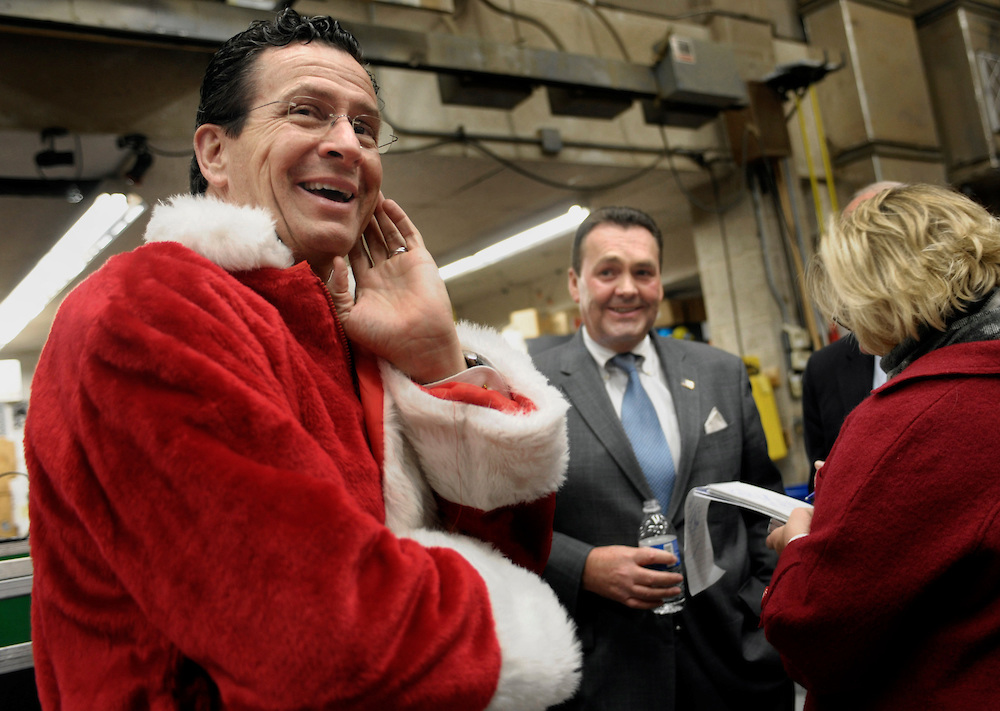Even if Ct passes a budget, the fun's just beginning
/I've had a blast playing the role, but the kids are wising up, so i'm out of here: so long, suckers
Another $3+ billion deficit looms on the horizon. More cuts, or more taxes?
Despite their many disagreements over how the next state budget should look, Republican and Democratic legislators have one key element in common.
Neither of their respective plans would spare Connecticut from grappling with another massive budget deficit two years from now.
The legislature’s nonpartisan Office of Fiscal Analysis says the two-year budget crafted by Republican legislators and passed in the House and Senate late last week would balance the state’s books this fiscal year and next — wiping out a $3.5 billion deficit in the process.
But that same plan, unless adjusted, would run $3.31 billion in the red between 2019 and 2021.
And the alternative budget developed by Gov. Dannel P. Malloy and Democratic legislative leadership would fare even worse, with a potential shortfall of $3.58 billion.
In other words, when Connecticut’s next governor arrives at the Capitol in January 2019, that person and the General Assembly effectively would face the same challenge that has confounded Malloy and legislators for the past eight months. And that’s after taking into account the wide array of spending cuts and tax hikes both sides have built into their latest budget plans.
That’s in part because Connecticut still must deal with surging debt and retirement benefit costs — much of which stems from more than seven decades of insufficient savings. This problem is projected to plague state finances through the mid-2030s.
“I know this has been a tough year,” House Minority Leader Themis Klarides, R-Derby, said early Saturday morning during a debate that ended when five Democrats joined all 72 Republicans to send the GOP’s two-year budget to Malloy’s desk. “And guess what? Next year is going to be a tough year. And the year after that is going to be a tough year. We don’t really see an end in sight. But what we know is we have some tough choices to make.”
Rep. Jason Rojas, D-East Hartford, House chairman of the Finance, Revenue and Bonding Committee, noted that the Republican budget carries no more promise that Connecticut’s fiscal crisis is over in two years than the Democratic plan does.
But Klarides said the Republican proposal is accompanied by key structural changes, including more stringent caps on spending and borrowing, that will begin to whittle down deficits over time.
Rep. Chris Davis of Ellington, ranking GOP representative on the finance panel, questioned the reliability of nonpartisan analysts’ assessment of the Republican budget.
The Office of Fiscal Analysis “cannot accurately estimate economic growth that potentially could come from a budget that does not feature massive tax increases,” Davis said.
Uh huh. And this is fun:
The largest hike in both plans would increase hospital taxes by $688 million over the biennium. All of those funds would be returned to the industry, along with some additional state payments, to leverage hundreds of millions of dollars in additional federal Medicaid payments to Connecticut.
I read just last week that the taxes extracted from hospitals (patients) under the current plan were also supposed to be returned, but they aren: at least half the money is being kept in the general fund for distribution to more politically favored groups, and that percentage is falling. Remember the gasoline fund, which is ostensibly devoted to road maintenance? Same thing.

